Published Oct 12, 2020
The Guardian of Forests: A Trek Fan Defends the Amazon and Indigenous Rights
Paul Paz y Miño takes inspiration from 'Star Trek' at work every single day.
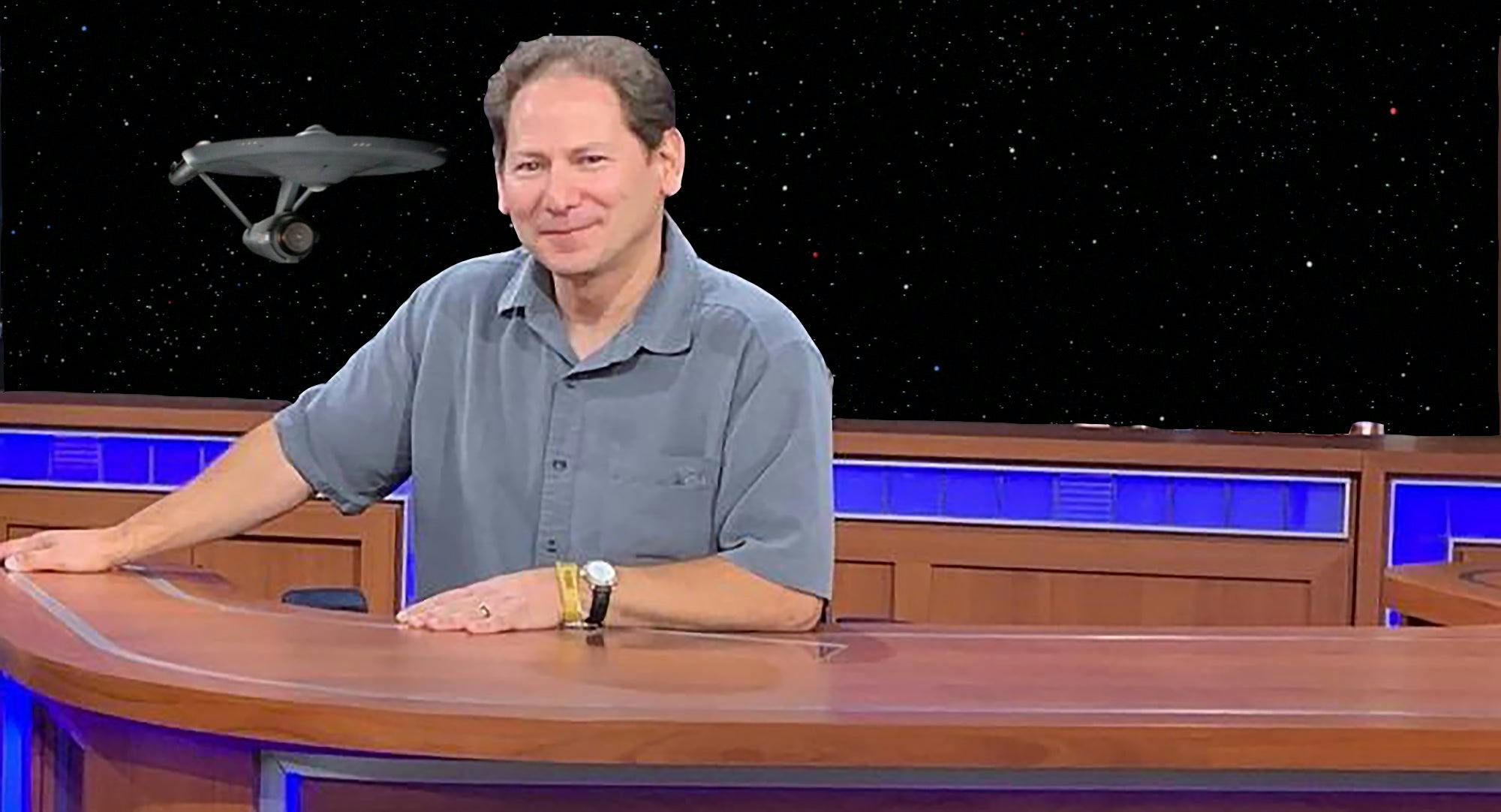
Paul Paz y Miño
Whether conducting planetary surveys or participating in first contact procedures, Starfleet officers serve the Federation as both explorers and diplomats. The multi-faceted approach to interstellar affairs parallels Star Trek fan Paul Paz y Miño’s belief that protecting the Amazon rainforest has as much to do with defending the rights of indigenous peoples as it does with the region’s impact on our environment. Paz y Miño’s dedication to the ideals he learned from the Star Trek franchise guided him on his path to becoming the Associate Director for the nonprofit Amazon Watch, a group which states that its mission is to “partner with indigenous and environmental organizations in campaigns for human rights, corporate accountability and the preservation of the Amazon's ecological systems.”
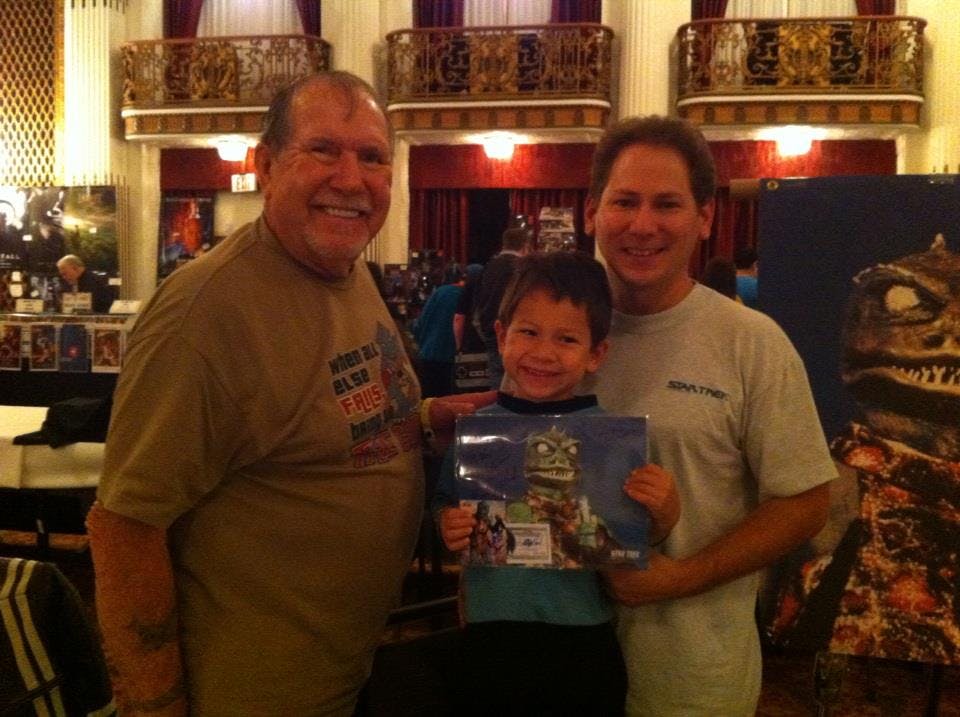
Paul Paz y Miño
Watching Star Trek: The Original Series reruns with his father ranks as one of Paz y Miño’s earliest memories. While the show’s science fiction elements appealed to the young man, the Starfleet officers’ integrity truly captivated the future activist. “I remember being affected by the nobility, honor, and sacrifices made by Kirk, Spock, and McCoy,” says Paz y Miño. “My favorite episode then, and to this day, has to be “Arena”. It has everything, an exciting villain in the Gorn, a suspenseful chase in space… but what affected me more and more as I grew older was Kirk’s moment of compassion and mercy that leads him to spare the Gorn. The words of the Metron truly stuck with me as I realized that humanity’s path for development is to learn to let go of our violent tendencies and become more tolerant, compassionate, and merciful. I still believe this, and it’s been a guiding force that led me to work for that in my career as a human rights defender.”
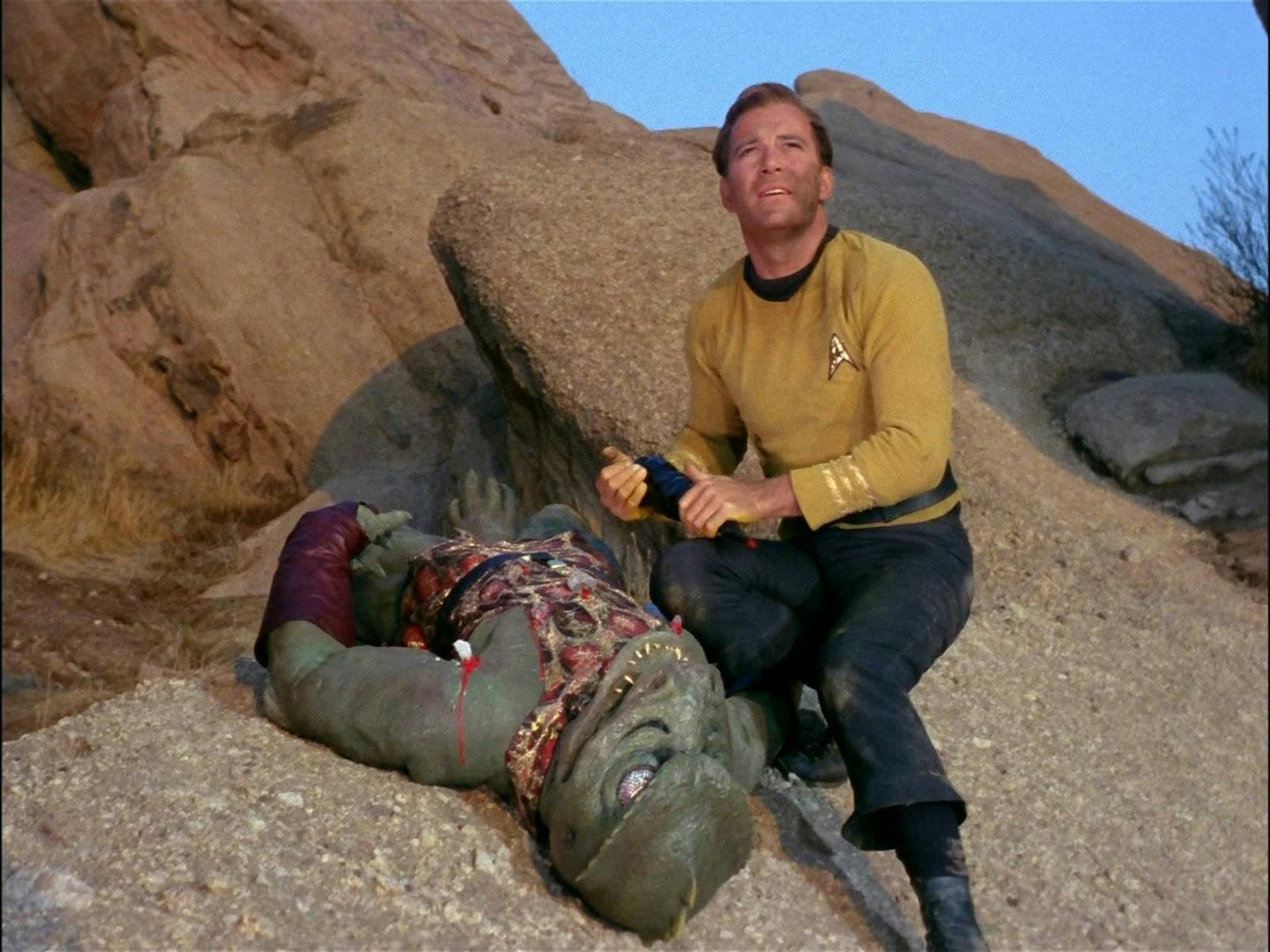
StarTrek.com
The zealous argument about human rights that Captain Kirk’s attorney Samuel T. Cogley delivered in “Court Martial” provided another profound influence for Paz y Miño. “I carry that same passion in my work,” explains the activist. “As the Associate Director at Amazon Watch, I work with indigenous communities to help defend their rights and territories from many threats. My goal has always been to fulfill what I see as my duty to defend human rights and the environment as part of humanity’s journey to improve itself. The hope and vision we get from Star Trek is something that continues to inspire me every single day. It’s a part of me.”
The mistreatment of prisoners stands as another aspect of human rights that the Polish-Irish and Ecuadorian Philadelphia-area native deals with on a personal level. “I have worked to stop torture and support survivors of torture for many years,” he says. “I have been Amnesty International USA’s Colombia Country Specialist since 1996 and led a program with the Seva Foundation pertaining to indigenous communities in Guatemala and Chiapas, Mexico for six years.” Due to their mutual connection with Amnesty International, Paz y Miño and Sir Patrick Stewart have crossed paths on numerous occasions. In fact, the activist cites Stewart’s performance as Captain Jean-Luc Picard in both parts of Star Trek: The Next Generation’s “Chain of Command” as a chillingly accurate portrayal of physical and mental abuse.
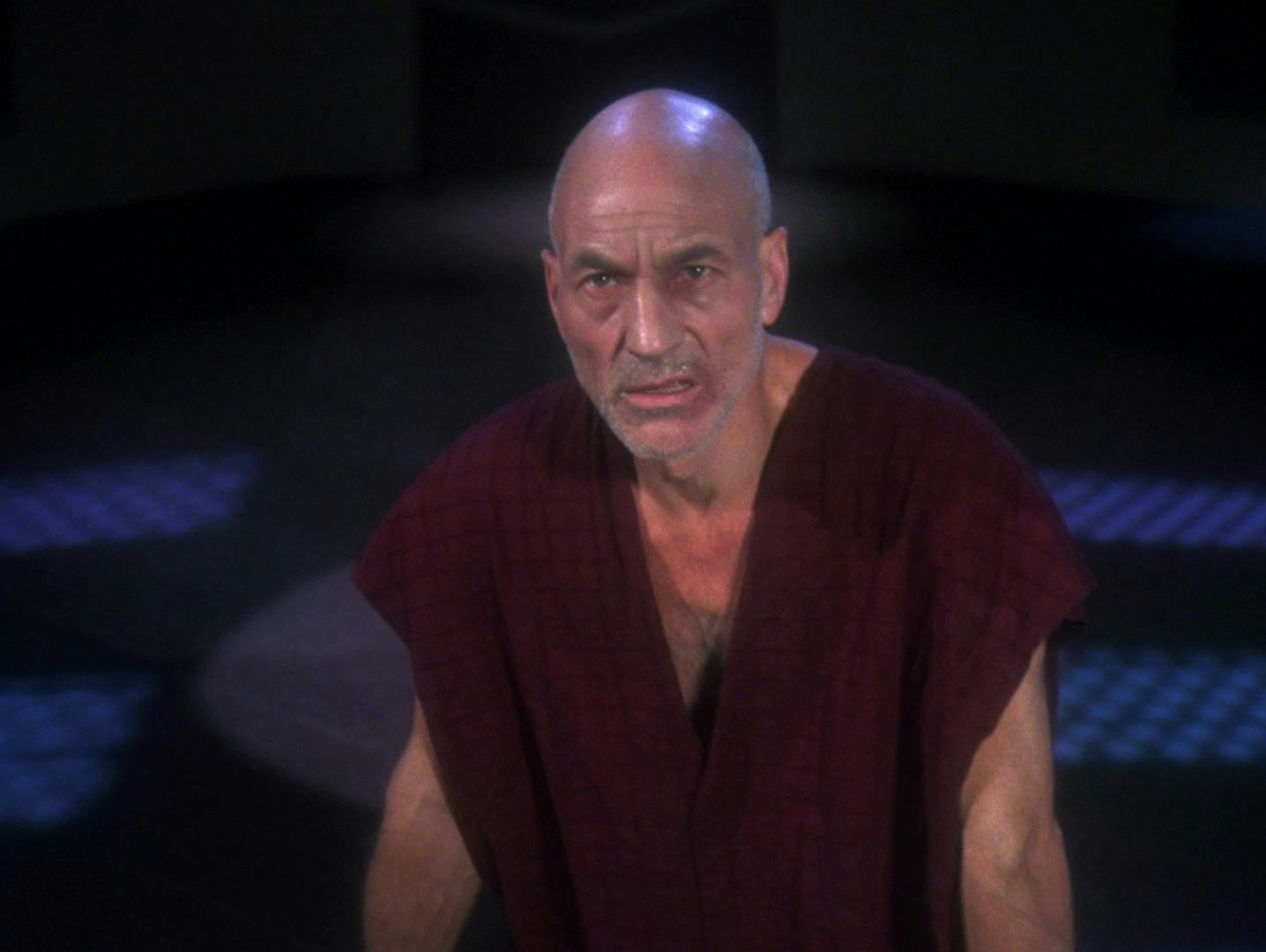
StarTrek.com
Paz y Miño’s focus shifted to the rainforests when he joined Amazon Watch, but rainforests and ecology remain inexorably linked to his expertise in human rights. “The best way to protect forests is to defend the rights of indigenous and local communities who have been its stewards for generations,” explains Paz y Miño. “Deforestation is driven by large corporations and financiers seeking to profit from the destruction of the Amazon. We all have a role to play in stopping this, but the most critical thing is to support the rights of indigenous communities on the front lines of the struggle. They are facing the worst effects and, if they are able to defend their territories from the incursions, they will preserve the forest for the benefit of all.”
Recent developments have only hardened Paz y Miño’s resolve. “Over 9,000 fires were illegally set on indigenous lands in the Amazon this summer, resulting in massive destruction. The raging fires place the Amazon in an even deeper crisis that is approaching a tipping point from which it will not be able to recover, unless deforestation is stopped,” he says. “The Amazon itself, considered by many to be the “lungs of the planet,” absorbs 25% of the world’s carbon dioxide. The Amazon’s role as a carbon sink is vital to our climate stability. There is a path forward to preserving the world’s forests, and it entails the defense of indigenous peoples’ rights.”
Paz y Miño often sees his beliefs reflected in Star Trek, as the franchise regularly depicts powerful messages about respecting others’ rights. “There are a few episodes that explore the dangers of interfering with the cultural development of a people, as well as the risks of contact with outsiders,” affirms the activist. Paz y Miño credits The Next Generation’s “Who Watches the Watchers,” an episode in which the Federation inadvertently comes into direct contact with a pre-warp society, as an important example. “To this day, many indigenous people live in voluntary isolation in the Amazon rainforest and are at extreme risk due to deforestation and development plans,” Paz y Miño explains.

StarTrek.com
“The Next Generation’s “Force of Nature” conveys a critical message about examining the impacts we have on our environment and confronting difficult changes to our way of life,” remarks Paz y Miño. The memorable episode cataloged the Federation’s unsettling discovery that warp travel presented an environmental threat to subspace. The revelation struck Geordi La Forge particularly hard and caused the U.S.S. Enterprise-D’s chief engineer to question his role in unwittingly contributing to the damage. Starfleet eventually instituted a warp speed limit to minimize the propulsion system’s negative effects. “Our 21st century dependence on fossil fuels is literally killing our planet, and we must choose to drastically change over our transportation and energy systems to solely clean and renewable sources,” advocates the fan. “There’s no time to waste if we want humanity to make it into the 24th century.”
Paz y Miño points to Picard’s decision to interfere with Admiral Dougherty’s plan to relocate the Ba’ku without their consent as another profound moment in Star Trek history. “I would say that Star Trek: Insurrection speaks to me powerfully as someone who works with communities at risk of forced displacement by those who seek to exploit the resources on their lands,” he says. Similarly, Amazon Watch’s associate director considers Tom Paris’s mutinous attempt to preserve the ocean sphere in Star Trek: Voyager’s “Thirty Days” to be noteworthy for its correlation to September 2019’s Global Climate Strike. “Young people all over the world are taking extreme actions to try to shock the world into taking this climate crisis seriously,” Paz y Miño says with a grin. “Personally, I think that’s worth a month in Janeway’s brig.”
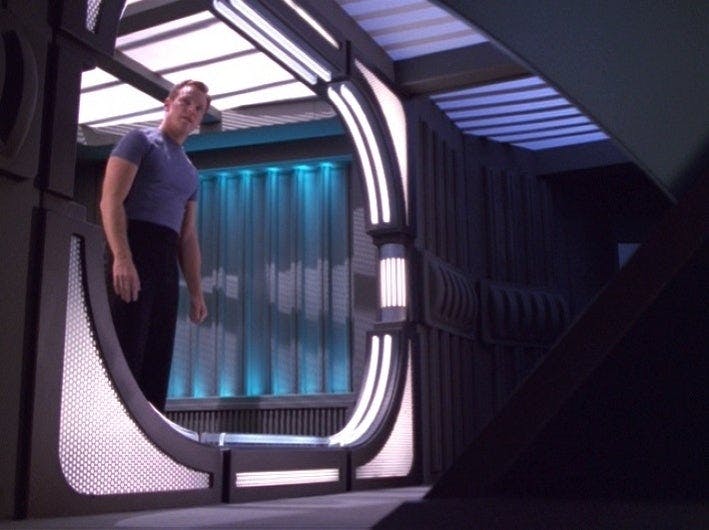
StarTrek.com
Several years ago, Paz y Miño enjoyed a unique opportunity that transpired at a convention in San Francisco. “I took the mic to tell William Shatner how his character inspired me as a young person,” describes the activist. While he held the legendary actor’s attention, Paz y Miño expressed his views on the Prime Directive. “I saw the wisdom of the Prime Directive in my work with indigenous communities, many of which maintain practices and traditions carried on for millennia. These groups have proven to be the most effective stewards of the world’s forests and their biodiversity. Just because a culture is more technologically advanced does not mean that it possesses greater wisdom.”
The intrepid fan perceives a poetic equivalence between Starfleet’s General Order 1 and his duties with Amazon Watch. “Respect for diversity and self-determination are critical elements of Star Trek and of the indigenous rights movement. The internationally-recognized right of Free, Prior and Informed Consent (FPIC) that applies to any external developers in indigenous territories is a fundamental part of indigenous rights. To me, that is very close to the idea of the Prime Directive,” Paz y Miño explains. “These communities, like alien cultures in Star Trek, must be free to develop their communities and cultures without outside influence or pressure. It can be boiled down to cultural respect.”
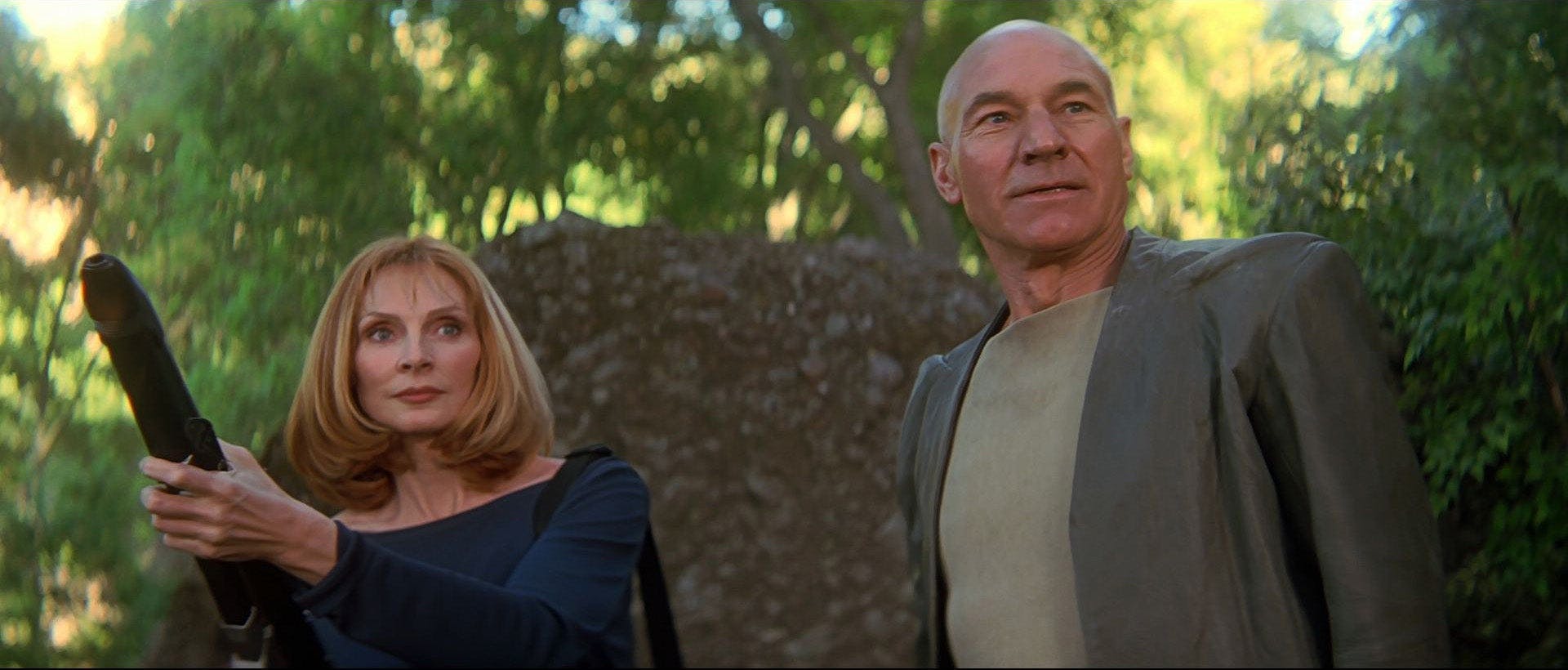
StarTrek.com
The activist takes great pride in the extent to which his work and fandom overlap. “As a lifelong Trekkie, I see elements of the messages of Star Trek all over the place. Many environmental justice and human rights colleagues are also fans of the show, and we connect about that frequently,” he says. “Several Star Trek actors have declared their support for Amazon Watch’s goal of protecting the rainforest and use their voices to elevate our mission. That gives me a special thrill, to know that people who are involved in something that is an important part of my world view feel the same way and want to help.”
Paul Paz y Miño’s tireless resolve to defend our environment and the rights of indigenous populations would surely earn him the respect of any Starfleet captain. The steadfast fan harnesses the lessons that he observed in Star Trek and courageously employs them to benefit Earth and its inhabitants. When asked to summarize the franchise’s role in his life, Paz y Miño considered the scope of the show’s influence and replied, “Many people say Star Trek inspired them to go into science, which is admirable. It inspired me to work for human rights and a more just world, and I am sure I am not alone.”
A Timeline Through the Star Trek Universe
Jay Stobie (he/him) is a freelance science fiction writer who contributes articles to the official Star Trek website and Star Trek Magazine. He can be found on Twitter and Instagram at @StobiesGalaxy.
